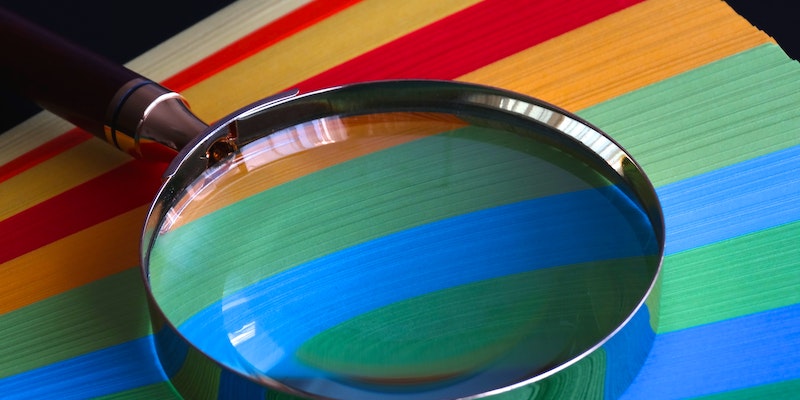
Information sources: selection criteria for literature research or evidence-based monitoring
For every research topic, information sources abound, whether free or paid. When an information specialist carries out a literature search or plans an information watch, he or she sifts through potential sources using additional criteria to guarantee quality results. We offer a brief overview of these filters, drawing a parallel with the questions that every journalist asks in his or her quest for information.
1. Relevance
In journalistic terms, this is where the What and Why questions meet. Even if this is the first criterion that comes to mind, it remains essential, and invites us to ask ourselves several questions:
- Does the source cover the field being researched?
- Does it offer us a categorization of information and a controlled vocabulary, enabling optimal access to information?
- If several sources answer the above two questions positively, what is their cross-referencing rate?
2. Target audience
This is the age of For Whom. Unless we're querying a general-purpose search engine, each source has its own specificity, which leads us to ask ourselves the following questions:
- Does the source correspond to the type and level of information sought (academic, popular)?
- Does it offer linguistic and geographical coverage that meets the needs of the requester?
3. Authority and its corollary, credibility
Questioning the creator of the information propels us into the sphere of Who and Where. When we're dealing with a recognized information database, the question doesn't arise so much, as the publisher has already selected a bouquet of primary sources and is making them available to us. However, when the search takes us into the world of grey literature, we must ask ourselves about the source organization:
- Is this organization well identified and does it have a good reputation in the field, recognized by specialists?
- Are the authors' names, qualifications and affiliations included?
- Are funding sources and potential conflicts of interest declared?
4. Document level: reliability, validity, accuracy, timeliness
Once Cogniges, as an information specialist, has questioned the quality of federating sources of documents, it may be called upon to examine the quality of each individual document. In this case, it's the How and When that prevail, and the exercise is akin to critical analysis:
- Reliability: is the methodology rigorous? Are the levels of evidence identified and described? Are biases absent? Are we sure this is not a predatory journal?
- Validity and accuracy: is the information objective and supported by diversified bibliographical references?
- Timeliness: is the document properly dated? Whether recent or older, is the information still relevant?
Find out More: some quality sources
University libraries traditionally promote the issue of evaluating information sources among their student clientele. Now they're sharing their expertise with the public, providing us with a number of highly educational web pages. Here is a selection:
Diapason : des résultats au bout des doigts. (2020). Évaluer ses sources avec 6 critères simples : niveau universitaire. https://mondiapason.ca/ressource/evaluer-ses-sources-avec-6-criteres-simples-niveau-universitaire/
McGill Library. (2023). Evaluate information and sources. https://libraryguides.mcgill.ca/c.php?g=707913&p=5040311
Université de Montréal. Service des bibliothèques. (2019). Fiabilité de l’information : évaluer le contenu en ligne. https://bib.umontreal.ca/evaluer-analyser-rediger/fiabilite-information
The libraries of the Université de Montréal offer a user-friendly, quantified analysis grid with a curious name, but a serious content: le foutaisomètre.
Université du Québec à Montréal. Bibliothèques. (2022). Infosphère : analyser l’information. https://infosphere.uqam.ca/analyser-linformation/